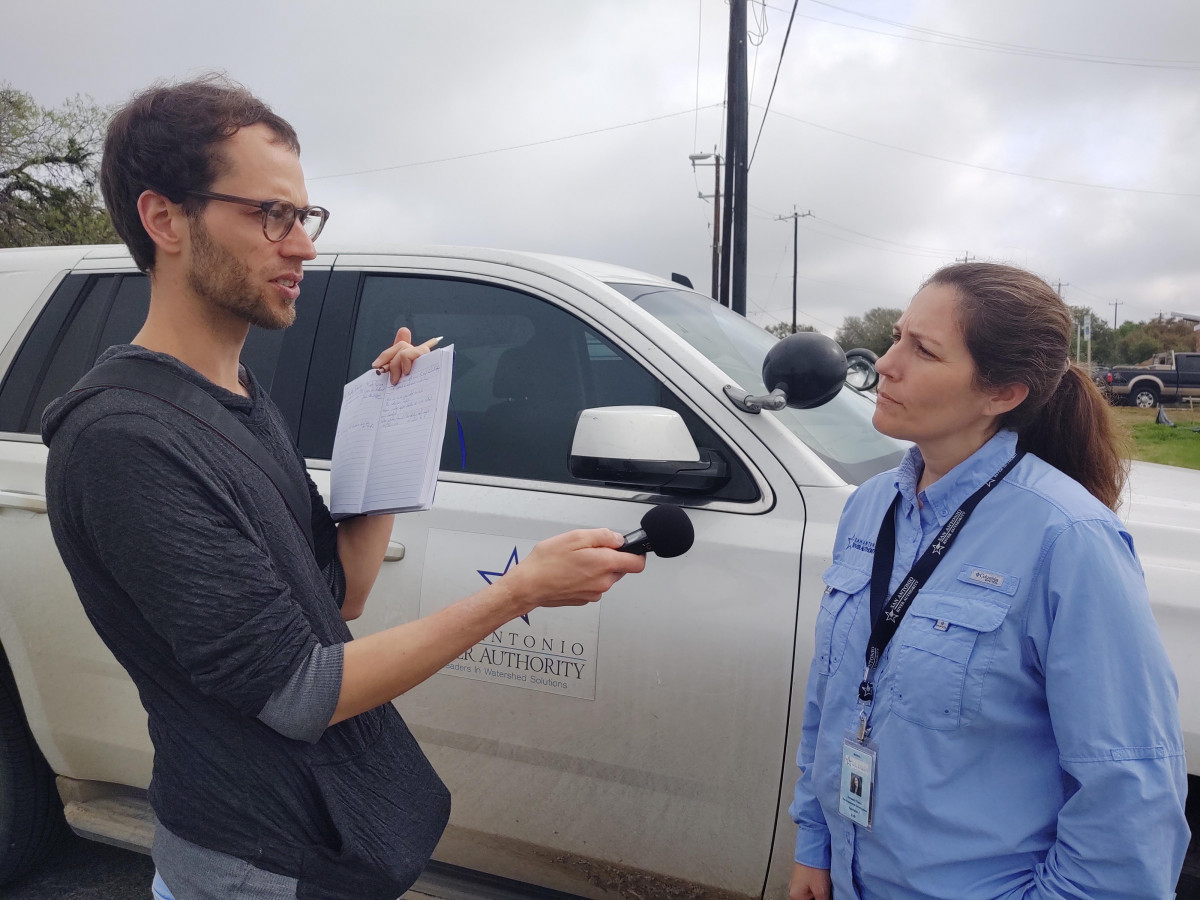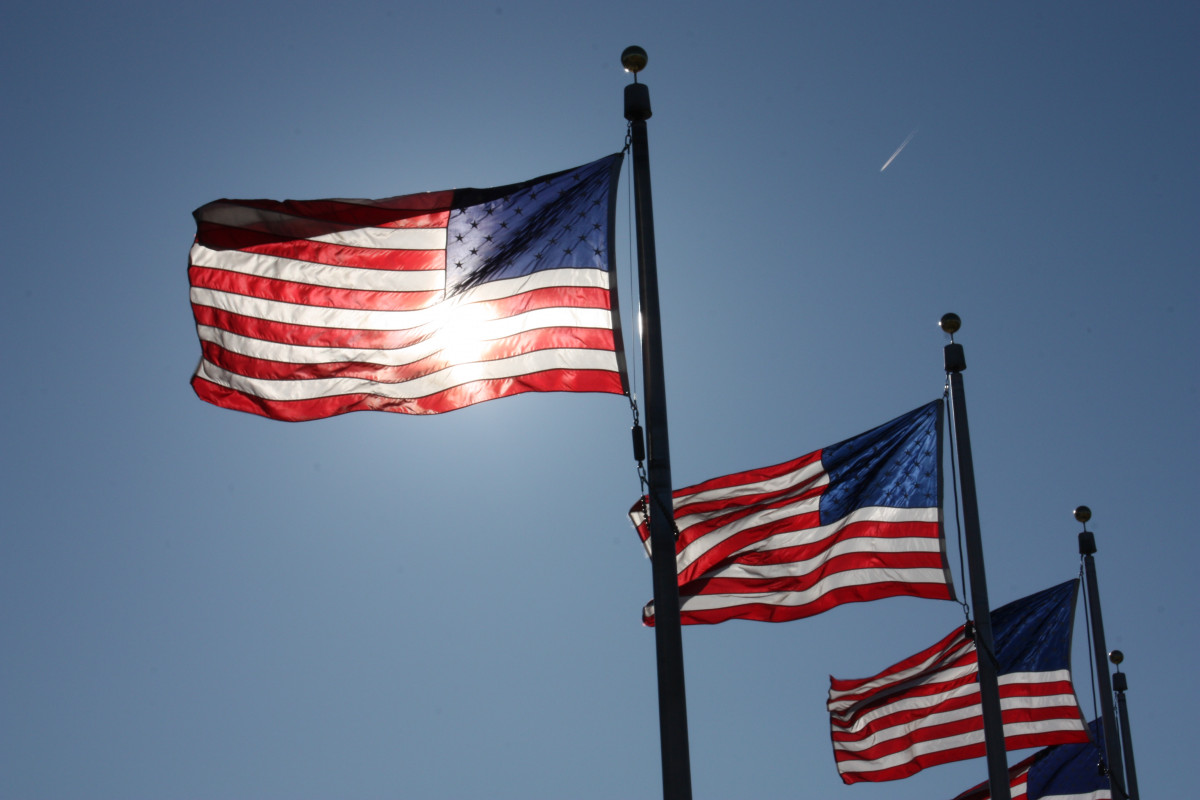
Julian Wettengel is a staff Correspondent for the Clean Energy Wire.
Follow the news and be ready to improvise – reporting in the time of coronavirus
The new coronavirus was increasingly affecting daily life across the planet: I heard that much. And I heard about U.S. President Donald Trump’s fumbled attempts to convey calm, control and expertise. News does travel to the remote parts of rural Texas. It just feels very far away – or at least it did to me. Until it didn’t.
For the past three weeks I have been travelling throughout the United States, exploring the American angle to a story I have until now covered from a European or German point of view: the U.S. liquefied natural gas (LNG) industry and exports to the EU. I wanted to know more about where the American natural gas industry is headed, how companies evaluate the European market, and whether the climate benefits touted by industry lobbyists withstand closer examination.
The trip was planned months in advance. By the time I arrived in West Texas in late February, the coronavirus already had China firmly in its grasp, and the German government was worried about the outbreak in Italy. Severe travel restrictions had been introduced in some regions of Europe. But me? To be honest, I had spent every spare minute in the weeks leading up to my flight calling and e-mailing potential contacts and reading up on the stories I would be covering. I had hardly given a thought to the approaching pandemic.
And so I landed in the U.S. fully focussed on the natural gas industry in Texas’s Permian Basin, on visits to fracking sites and meetings with residents and local journalists. I shook people’s hands and drove through the Texas countryside for hours with activists in the passenger seat. Social distancing? Nope.
My view only changed on 1 March. That’s when I received an e-mail notifying me that CERAWeek – the massive oil and gas industry conference in Houston that I had flown halfway around the world to attend – was cancelled. From one moment to the next, a third of my plans evaporated into thin air, and with it much of the preparation and organisation I had put into my trip. The access to industry players and journalist colleagues, the insight from market analysts I had hoped to gather in the hallways of the Houston Hilton Americas – gone.
It meant I had to improvise a whole new reporting plan, all while meeting contacts, transcribing interviews and writing articles. Interview partners in Washington, D.C. sent e-mails asking whether I’d been to one of the most affected countries in the past two weeks. If so, how about a telephone interview?

And then, the situation changed again. On 9 March, oil prices crashed due to the Russian-Saudi price war, sparked by the coronavirus. Contacts I had planned to meet in Houston – the energy capital of the world – cancelled: there were more pressing issues to deal with. I had to accept that. But at a small, half-day LNG export conference, companies were eager to emphasise that a) gas is not oil and b) liquefied natural gas exports are a long-term business, not likely, they said, to be overly influenced by the virus. “The LNG keeps flowing and I haven’t heard about any restrictions on imports or exports,” one representative told me.
Two days later, I woke up to the news that President Trump was introducing travel restrictions for European countries – and that was my final wake-up call. Here I was, researching a story about transatlantic relations even as the physical ties across the ocean were being cut.
Only the night before I had told one interviewee, Sister Elizabeth Riebschlaeger, a San Antonio nun and anti-fracking activist, that I would wait and see what happened. Now, I was nervous that all flights might get cancelled and I’d be stranded in the country for weeks or months. Riebschlaeger herself was very kind and offered her help and contacts.

From a café in San Antonio I spoke with my editor in chief, Sven Egenter, and decided to cut my trip short. It was not an easy decision and I am sad to have missed out on some of the places I meant to visit – like Brownsville on the border with Mexico, where Native Americans, environmentalists and the City of Port Isabel are trying to prevent the construction of LNG export terminals. Thankfully, many of my contacts have agreed to phone interviews over the coming days, allowing me to finish my stories. It’s not ideal, but it will have to do.
I’ve now returned to a very different Berlin than the one I left. My colleagues had already started to work from home, and I am curious to see how everyday life has changed (will I be able to buy toilet paper??) and what this will mean for the way we report on climate and energy issues over the coming weeks. CLEW’s staff will work from home for the time being.
On Monday night, the German foreign office officially recommended cancelling all unnecessary travel to other countries. “The risk that you will not be able to make your return journey due to increasing restrictions is currently high in many destinations,” they wrote. Tell me about it.
So what have I learned from these past weeks? And what should other journalists know about reporting during a moment like this? First, follow the news in such a situation – that’s where I have some catching up to do. Second, planning is crucial, because even if your original reporting agenda falls apart, it allows you to quickly change tack, reschedule with contacts and adapt your itinerary. After CERAWeek was cancelled, I was able to change plans and visit San Antonio – what a beautiful city – and made plans to meet additional contacts in Austin, which admittedly fell apart once I decided to head home early.
And finally, as is so often the case, communication is key. Thankfully, e-mail and mobile phones allow us to let everyone know about changes quickly. And in my case, talking the situation over with my newsroom helped me refocus and make the decision to cut the trip short – which, having seen the latest developments, I’m glad I did.
For too long, I didn’t pay the virus much thought and didn’t consider drastic steps like ending my trip early – of course I’d be able to get home! When I did finally decide to leave the U.S., it felt like giving up. It still feels that way, but our job as reporters is to roll with the punches – and find another way to get the story.
Julian’s research trip was supported through a Kellen Fellowship by the American Council on Germany.

